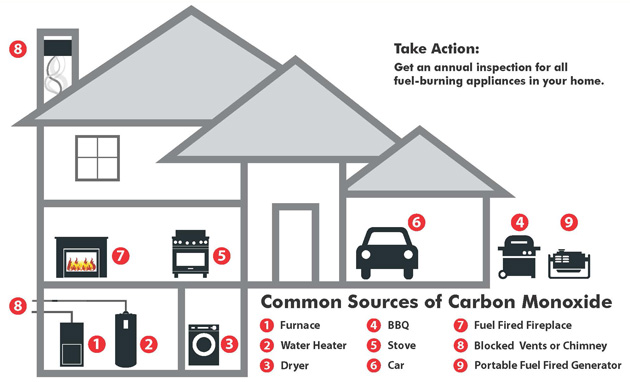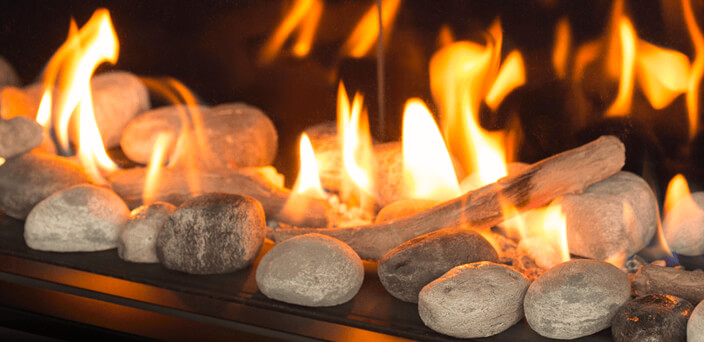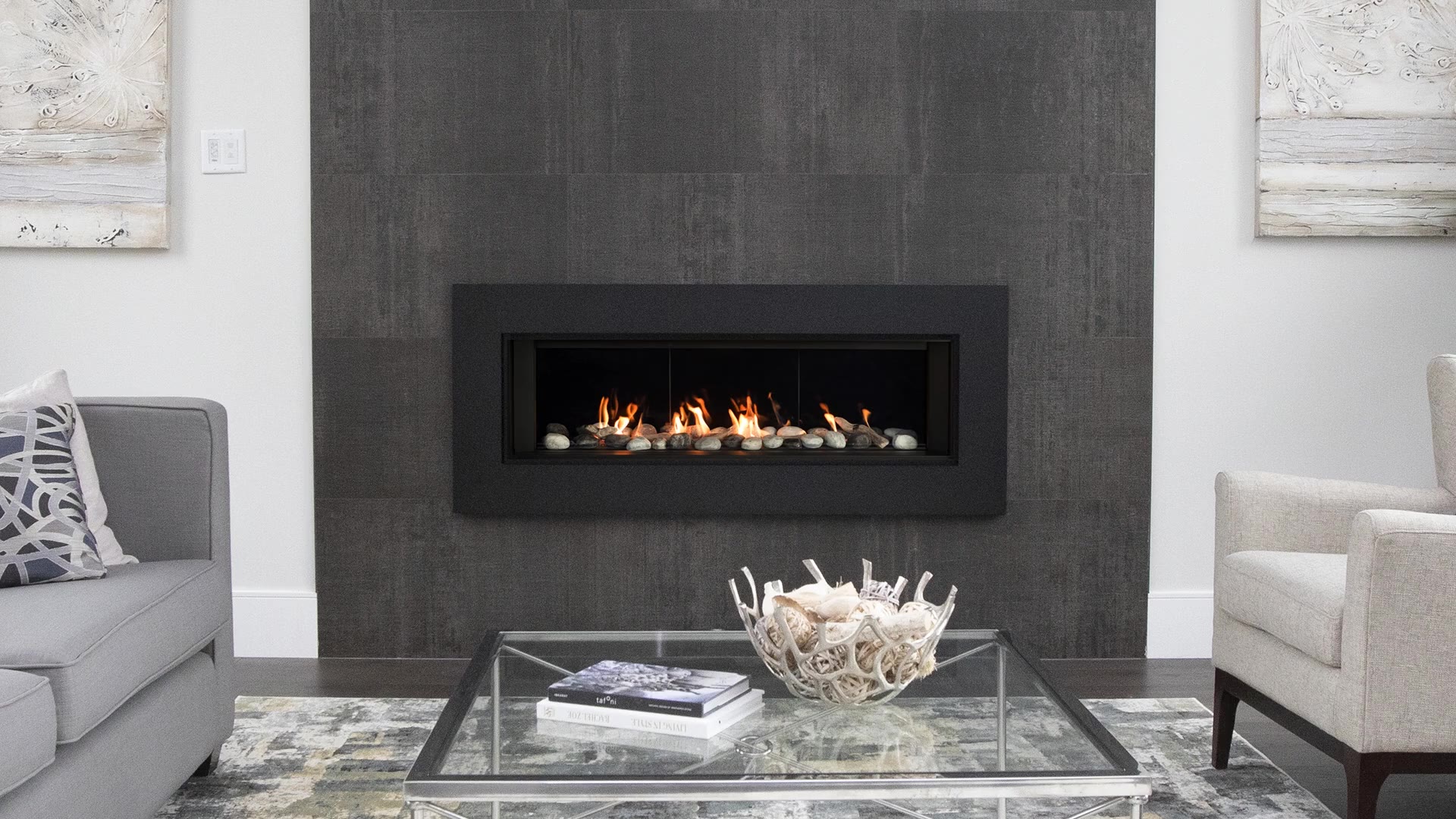Carbon Monoxide Poisoning
Where does CO come from?
CO is a colourless, odourless and tasteless gas that blocks your body’s ability to absorb oxygen. In gas-fired appliances CO is produced when natural gas burns incompletely. Carbon monoxide may come from several sources in your home including fireplaces, furnaces, water heaters and boilers.
This may happen if:
- Defective or damaged heating systems are being used
- Heating appliances are not maintained annually
- House is not properly ventilated
- There are blocked chimneys or flues lines
- There is poor installation of heating systems
- Heating appliances are used incorrectly
- There are property renovations or home improvements, which has reduce ventilation
Signs of CO poisoning?
- unconsciousness
- vomiting
- confusion
- dizziness
- light headedness
- headaches
- nausea
- fatigue
- chest pains
Also Condensation on windows, plants dying, and/or having an entire family sick at the same time can be indicators that there are toxic levels of CO in your home.
Where should I install the CO alarm in my home?
Typically, there should be a CO alarm placed within five feet of every bedroom and they should be placed near a smoke alarm. By doing this you hear the alarms if you are sleeping and also reminds you to examine and change the batteries of both alarms at the same time.
Are CO alarms required by law in British Columbia?
By law CO alarms are currently only mandatory in new homes. Carbon Monoxide alarms can be hardwired to your home or battery operated.T he batteries should be replaces every six months. CO alarms should be replaced every seven years.
When buying a CO alarm, look for one with a digital read out if possible. Vocal alarms allow you to record an message with your own voice, which has been shown to be more effective especially when alerting your family members.
How to prevent Carbon Monoxide poisoning?
Maintaining and servicing your heating appliance(new or old) annually.
Protect your family by booking maintenance appointments once a year for your furnace, gas fireplace, boiler and hot water tank.




About the author